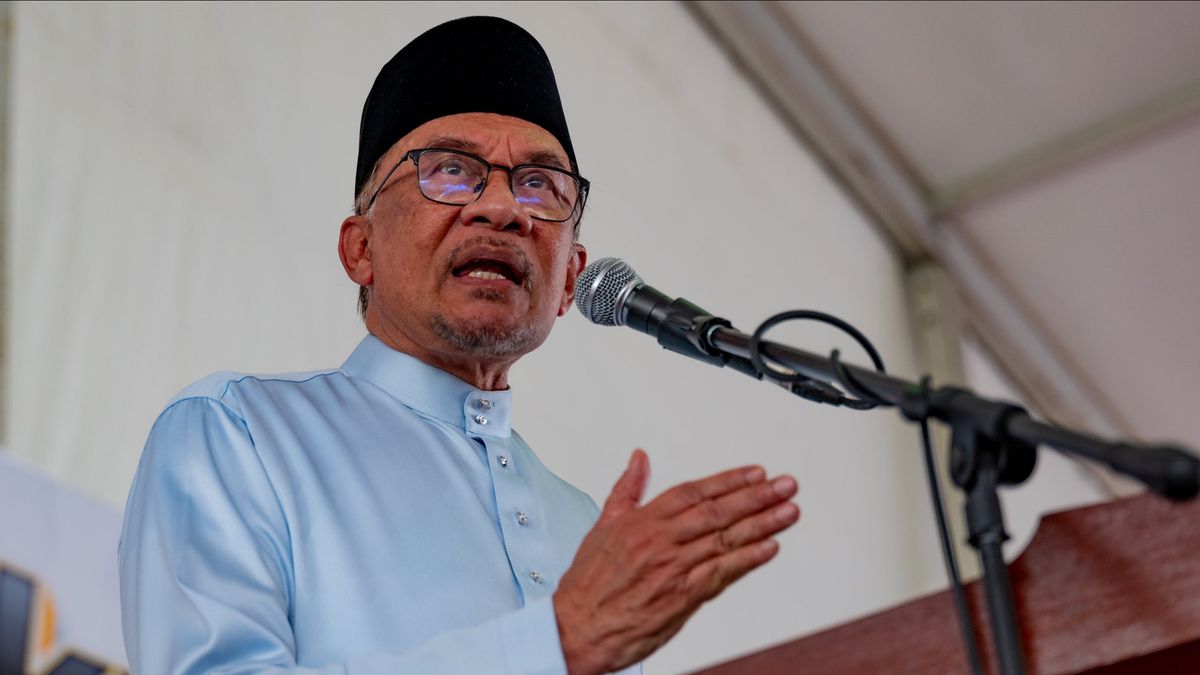The newly elected Malaysian Prime Minister Anwar Ibrahim became the country’s 10th leader after decades of tumultuous political journey that saw him being ousted as deputy prime minister in the 1990s, sent to jail twice and repeatedly written off by rivals as an also-ran politician.
Anwar’s rise to power marks a stunning comeback for a man who at the peak of his political career was suddenly sacked by the government of former Prime Minister Mahathir Mohammad in the 1990s. Anwar was also convicted and jailed on corruption and sodomy charges, which were widely believed to be politically motivated. Although the court overturned the first conviction in 2004, a year after Mahathir left office for the first time, more allegations of sodomy were made against Anwar and he returned to jail in 2014.
In a stunning twist, with Anwar still behind bars, he and Mahathir joined forces for the 2018 election to topple the government of then prime minister Najib Razak, whose administration had become embroiled in a corruption scandal surrounding the state investment fund 1 Malaysia Development Berhad (1MDB). Mahathir vowed that should they succeed, he would free Anwar and step aside for him after a couple of years in power. While Mahathir stuck to the first promise, with a royal pardon freed Anwar soon after the election, he backtracked on the second.
Following the general election that was held on Nov. 19, Anwar finally took his oath as prime minister on Nov. 24 before Malaysian King Sultan Abdullah bin Sultan Ahmad Shah, who named him to the post after Anwar established a “unity government”. Anwar’s multiethnic Pakatan Harapan (Alliance of Hope), led with 82 seats, short of the 112 needed for a majority in the 222-seat parliament. To secure the PM position, Anwar established a unity government with the National Front (BN), which has 30 lawmakers in the parliament, the Sarawak Parties Alliance (GPS) that has 23 lawmakers and the Sabah People Alliance (GRS) that places 6 lawmakers.
Meanwhile, his rival candidate Muhyiddin Yassin’s right-leaning National Alliance (PN) won 73 seats. Within the alliance, Pan-Malaysian Islamic Party has emerged as the single biggest party with 49 seats. Muhyiddin had served briefly as the country’s eighth prime minister and was vying to return to power.
Among his first pledges as Malaysia’s new prime minister, Anwar said he “would not take” a salary as a show of solidarity with Malaysians struggling with the rising cost of living. He also promised to help the country embrace multi-culturalism. Malaysia has long adopted a policy of institutionalized affirmative action favoring the ethnic Malay majority over its sizable Chinese Malaysian and Indian Malaysian minorities.
Within a week of his appointment, Anwar has been under fire after the new ministers were sworn in on Dec. 3 as the Cabinet line-up includes two deputy prime ministers: BN’s Ahmad Zahid Hamidi and GPS’s Fadillah Yusof. Ahmad Zahid, who was the deputy prime minister in the Najib Razak administration, recently faced 47 corruption charges in court.
Anwar was also criticized for keeping the post of Finance Minister for himself. Research executive Halmie Azrie Abdul Halim of the think-tank Ideas is concerned about the new Premier holding the finance portfolio as Finance Ministry is arguably the second-most influential in the Cabinet and there could be a lack of oversight if the Prime Minister holds the position. Halmie also reminded that former prime minister Najib Razak also helmed the Finance Ministry during the 1MDB saga.
Economic Affairs Minister Rafizi Ramli defended Anwar’s decision of to concurrently hold the finance portfolio, saying that Anwar was a “suitable” candidate for the post considering the “extraordinary circumstances” in his unity government. However, Rafizi also expressed hope that the current government would do this only as a temporary arrangement.
Regardless of the controvery, Anwar has kept his promise to establish a small cabinet, which only comprises 28 ministers, leaner than the Cabinet teams under Ismail Sabri Yaakob and Muhyiddin Yassin. Under the Ismail Sabri administration, there were 31 ministers and 38 deputies. Meanwhile, Muhyiddin had a Cabinet of 32 ministers and 38 deputies. Anwar has yet to announce the list of deputy ministers. The new cabinet ministers have agreed to cut their monthly salaries by 20 percent until the economy recovers, after Anwar chaired first Cabinet meeting on Dec. 5.
The honeymoon period for the new Malaysian PM proved to be quite short, and Anwar and his cabinet would have to work fast to establish reforms and economic recovery to the Southeast Asian country.










